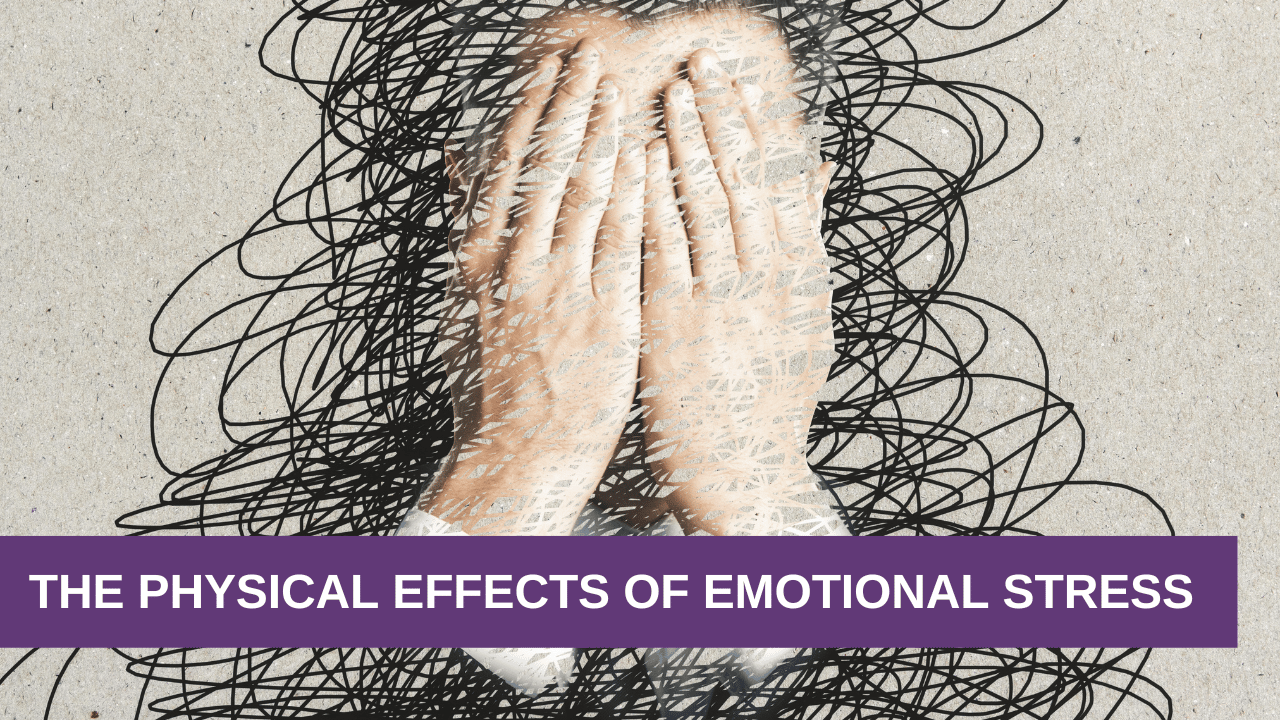It’s not uncommon knowledge that stress can cause an emotional reaction. It doesn’t have to be a physical stressor like an injury or illness. It can be an emotional stressor, like a difficult relationship or work situation, the loss of a job or a loved one, or learned hyper-reactions to everyday stressors that can induce emotional stress.
We know that stress affects all body systems, including the musculoskeletal system, respiratory system, cardiovascular system, endocrine system, immune system, gastrointestinal system, nervous system, and reproductive system. And emotional stress affects your body just as much as physical stress does.
In the musculoskeletal system, a sudden onset of stress causes the muscles to tense up.
Tension is only released when the stress passes. This is your body’s way of trying to either fight the stressor or get away from the stressor. But chronic stress causes the muscles in the body to be in a constant state of guardedness. Persistent tension can lead to headaches and neck and back pain.
In the respiratory system, emotional stress can present in a variety of ways.
Including shortness of breath or rapid breathing. Which can lead to hyperventilation, where the airway in the nose, pharynx, and bronchioles contract. Chronic stress can exacerbate existing respiratory issues, inducing asthma attacks or causing sleep apnea.
Your cardiovascular system is also affected by stress.
Acute stressors increase the heart rate and contractility of the heart muscle, which gets your blood flowing to your extremities so you can get away from the danger. But in the long term, that increased heart rate and muscle contraction can lead to hypertension, heart attacks, and strokes. Repeated acute or persistent chronic stressors will contribute to inflammation in the cardiovascular system, reflected by an elevation in cardio-reactive protein (CRP). Cardiovascular inflammation, especially in the coronary arteries, contributes to heart attacks. High stress can also affect a person’s cholesterol levels, because it causes the dangerous small particle LDL to rise, and protective large particle HDL to fall, which can contribute to arterial plaque, leading to heart attack or stroke.
Your endocrine system is also affected by stress.
Chronic stress results in impaired communication between hormone-producing glands and your hypothalamus. That’s because the HPA axis (the communication between the hypothalamus, pituitary, and adrenals) is overstimulated for a long time. All that attention going to the adrenals can affect thyroid function and sex steroid, which then affects pancreatic functions.
We also know that chronic stress affects your immune system function.
When your HPA axis is over-activated, your immune system is suppressed, leading to autoimmune disorders, cancer, chronic fatigue, diabetes, obesity, and mood disorders.
Your gastrointestinal system is also affected by stress.
Stress affects gut-brain communication, triggering pain, bloating, and bowel dysfunction. It’s not uncommon to see increased chronic stress-related heartburn, GERD, and indigestion. The gut is inhabited by millions of bacteria that influence your intestinal and brain health. Chronic stress can interfere with the health of beneficial microflora in your gut which can cause gastrointestinal symptoms and mood disorders.
It shouldn’t come as a surprise that your nervous system is also affected by stress.
Chronic stress over-activates your autonomic nervous system. Your autonomic nervous system is made up of the sympathetic nervous system and the parasympathetic nervous system. The sympathetic nervous system allows your body to get away from danger by speeding systems up, and your parasympathetic nervous system slows things down. If the sympathetic nervous system is constantly stimulated, your adrenal glands produce more adrenaline, raising your heart rate and blood pressure. Adrenaline stimulates your hypothalamus to tell your adrenals to produce cortisol. High levels of cortisol over time cause tissue destruction.
Your reproductive system is also affected by stress.
In females, chronic emotional stress can induce irregular periods, missed periods, infertility, increased premenstrual syndrome, decreased libido, and premature menopause. While in males, stress can decrease libido, cause infertility, and even erectile dysfunction.
If you have any questions about emotional stress causing physical effects, I’d love for you to join me in our Hormone Support Group, which you can access through our free Hormone Reboot Training. Living with stress is not easy, but there are ways to handle it better and heal.



0 Comments